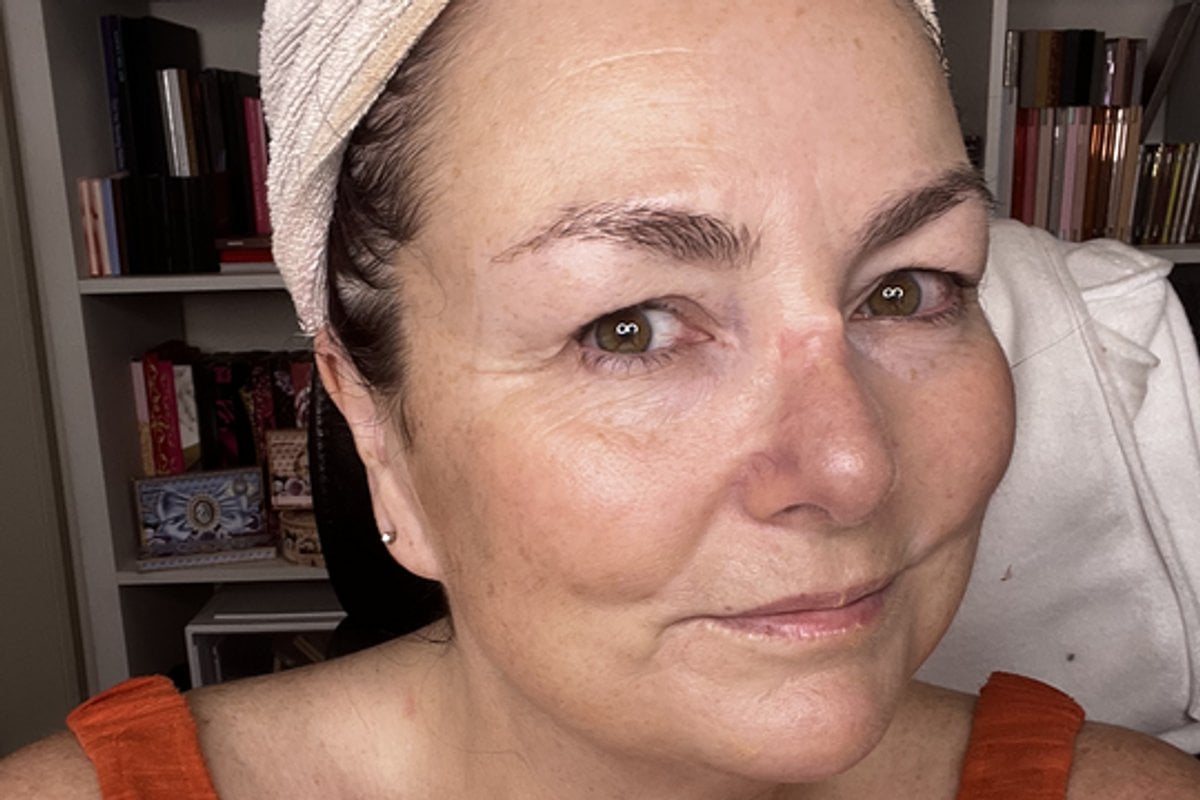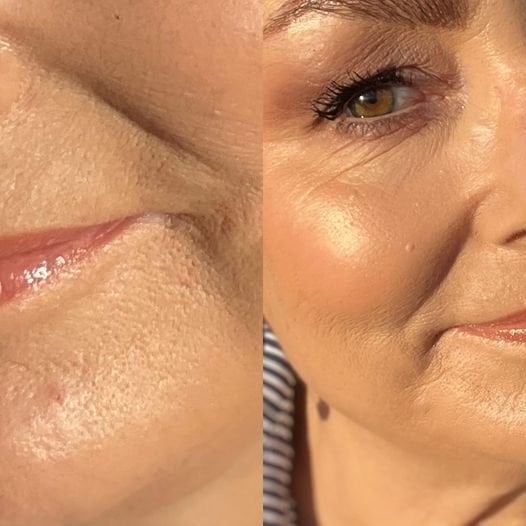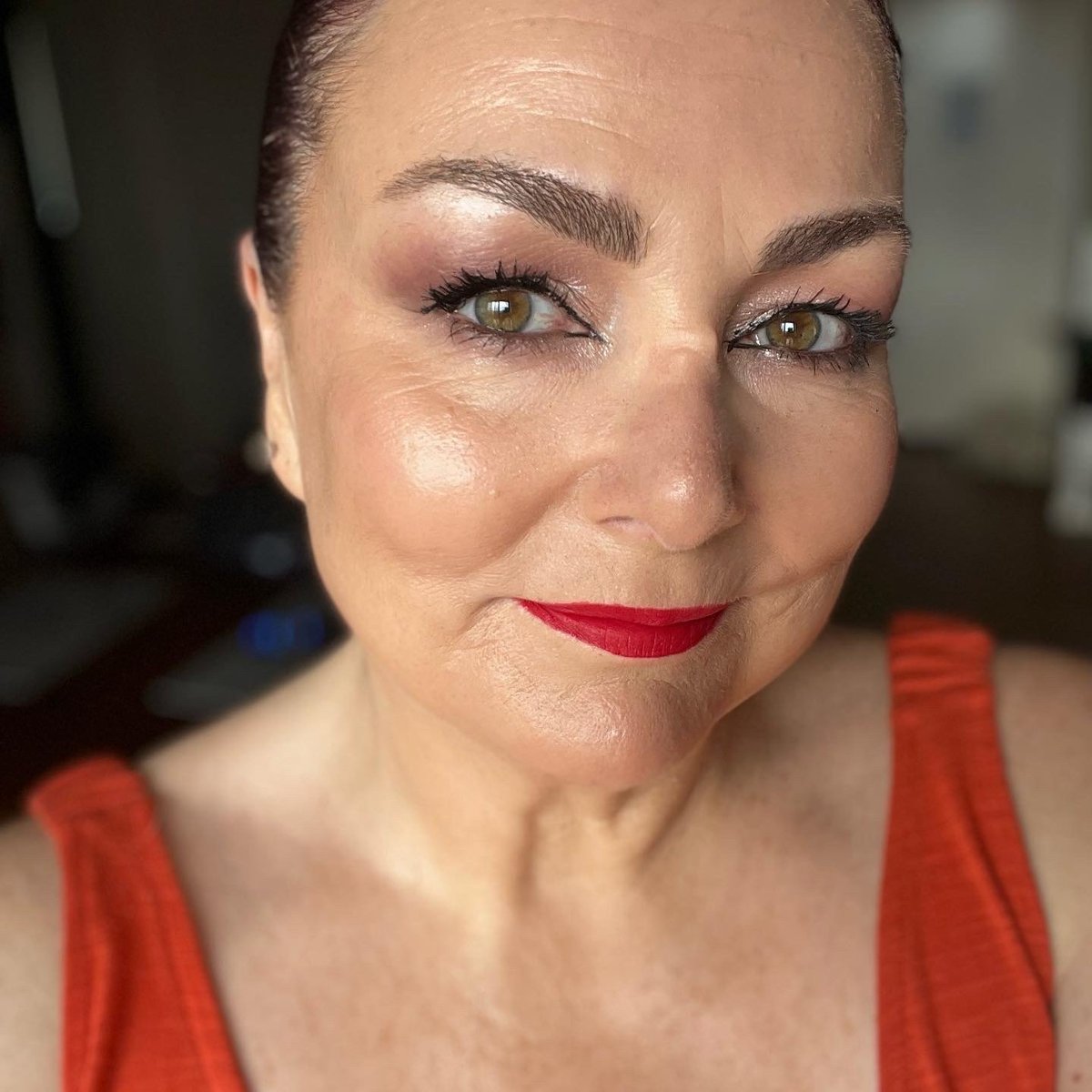
For a few years now, beauty filters have been easily accessible to everyone.
From social media platforms like Snapchat and Instagram to specific photo editing apps, filtering our photos has become the norm.
I’ve been guilty of it in the past, for sure – I mean, who doesn’t want to look like a better version of themselves with no wrinkles or perceived imperfections?
About three years ago I stopped using filters as I noticed my photos were not showing the character in my face; I no longer looked like myself and I was not okay with that.
Watch: What do I put on my skin these days? Post continues after video.
Recently I've noticed that when people post an unfiltered image of themselves online, they start with an apology for the state of their skin.
Why? Because it’s showing texture, it’s showing imperfections, and they feel ashamed. How did we get to a point where we are apologising for looking human?
Blame filters, blame social media pressure, blame the amount of time we spent looking at ourselves on Zoom calls during COVID, or blame the Kardashians, but we now have a subset of body dysmorphic disorder called facial dysmorphia.
It's where the individual is focused on their face and can become consumed over its perceived defects. There is no definitive cause for this disorder and while it can happen at any age, it is most likely to occur in adolescence.

